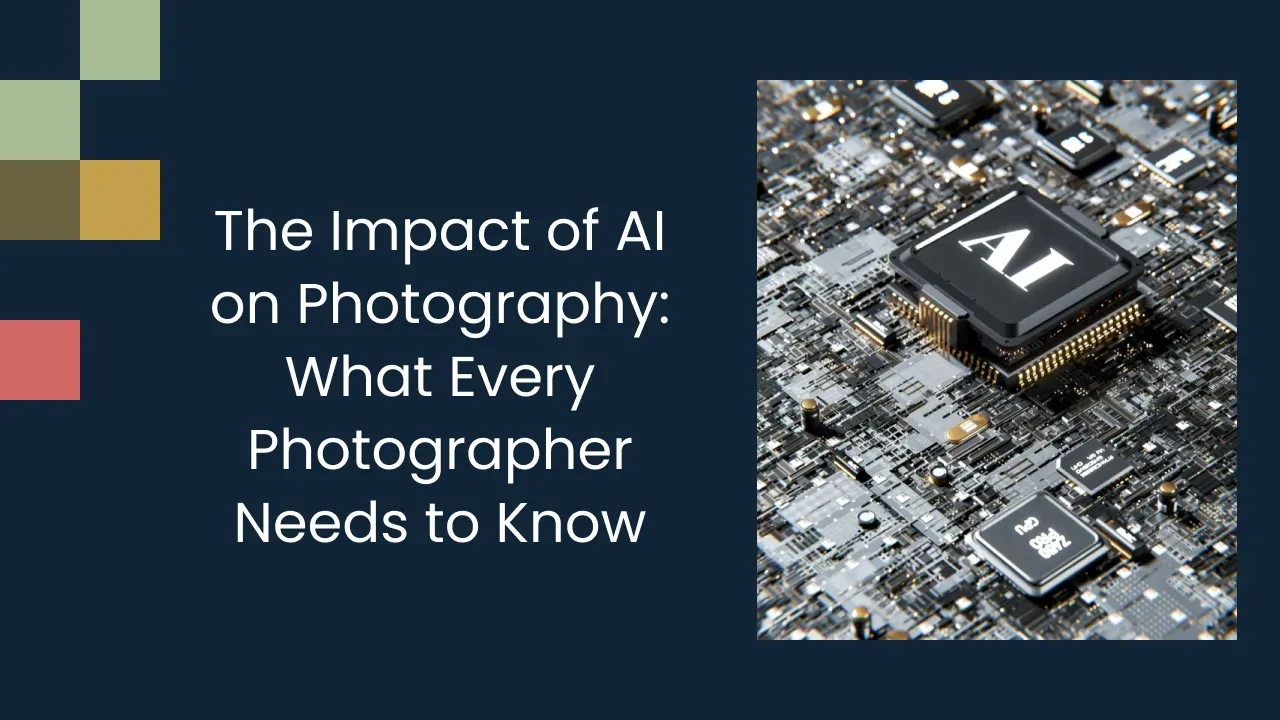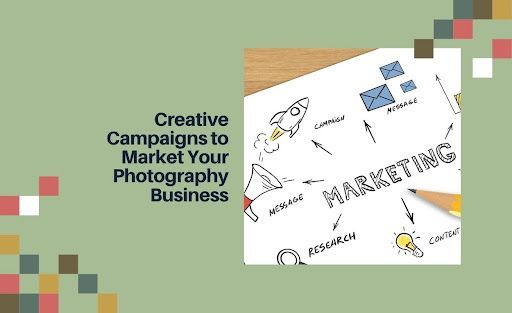The Impact of AI on Photography: What Every Photographer Needs to Know
Artificial Intelligence (AI) has revolutionized various industries, and photography is no exception. With advancements in technology, AI has become an integral part of the photography ecosystem, transforming the way photographers capture, edit, and organize their images. Understanding the role of AI in photography is crucial for every photographer in this rapidly evolving digital landscape.
Understanding AI and Its Relevance to Photography
Before delving into the impact of AI on photography, it is essential to define what Artificial Intelligence truly represents in this context. AI refers to the development of computer systems capable of performing tasks that would typically require human intelligence. In the realm of photography, AI algorithms can analyze and interpret visual data to produce remarkable results.
Artificial Intelligence encompasses a range of techniques, including machine learning, deep learning, and computer vision. Through these methods, AI systems can understand patterns, identify objects, and even make decisions based on the analyzed data. This ability opens up new avenues for photographers to explore and experiment.
Defining Artificial Intelligence
Artificial Intelligence encompasses a range of techniques, including machine learning, deep learning, and computer vision. Through these methods, AI systems can understand patterns, identify objects, and even make decisions based on the analyzed data. This ability opens up new avenues for photographers to explore and experiment.
Machine learning, a subset of AI, allows cameras to recognize scenes and optimize settings for the best possible shot. For instance, AI-powered cameras can detect faces, adjust focus, and enhance colors to produce stunning portraits effortlessly. This level of automation streamlines the photography process, enabling both amateurs and professionals to capture exceptional images with ease.
AI's Role in Modern Photography
Artificial Intelligence has found its way into various aspects of modern photography, amplifying the capabilities of photographers. This technology aids in both the image capturing process and the post-production phase, bringing forth a wealth of opportunities for innovation and creativity.
Moreover, AI-driven editing tools have revolutionized the way photographers enhance their images. These tools can automatically remove imperfections, adjust lighting, and even suggest creative edits based on established aesthetic principles. By leveraging AI in post-processing, photographers can achieve consistent and high-quality results, saving time while maintaining artistic control over their work.
The Intersection of AI and Photography
One of the notable intersections between AI and photography is in the realm of photo editing. AI-powered editing tools offer photographers the ability to enhance their images effortlessly. These tools leverage machine learning algorithms to automatically adjust lighting, colors, and textures, resulting in stunning visual transformations.
Furthermore, the integration of AI in photo editing has opened up new creative possibilities for photographers. These tools not only assist in enhancing images but also provide innovative filters and effects that can add a unique touch to photographs. By leveraging AI, photographers can experiment with different styles and techniques, pushing the boundaries of traditional editing.
AI in Photo Editing
AI-driven photo editing tools intelligently analyze images and apply adjustments based on existing patterns and recognized elements. This enables photographers to streamline their editing workflow, saving valuable time and effort. The collaboration between photographers and AI algorithms enhances the overall quality and aesthetics of the final output.
AI in Image Recognition and Sorting
Another area where AI makes its mark in photography is image recognition and sorting. Through AI-powered algorithms, photographers can easily search and organize their vast libraries of images. These intelligent systems can identify objects, faces, and even scenes within photographs, making it a breeze to locate and categorize specific images.
Moreover, AI's image recognition capabilities extend beyond simple tagging and sorting. These algorithms can also assist photographers in analyzing trends within their work, identifying common themes or styles that can help them refine their artistic vision. By harnessing the power of AI for image recognition and sorting, photographers can gain valuable insights into their own body of work, leading to continuous improvement and growth in their craft.
The Benefits of AI in Photography
The integration of AI into photography brings forth a host of benefits that can elevate the craft to new heights. These advantages encompass improved efficiency, enhanced creativity, and the ability to push boundaries previously thought insurmountable.
AI in photography goes beyond just automating tasks ; it also plays a significant role in enhancing image quality. Through AI-powered image enhancement tools, photographers can achieve sharper details, more vibrant colors, and improved lighting in their photos. This level of precision and enhancement was previously unattainable without extensive post-processing work, highlighting the transformative impact of AI on the final output.
Improved Efficiency and Productivity
By automating certain tasks, AI allows photographers to focus more on the creative aspects of their work. Time-consuming processes, such as culling and organizing images, can be accomplished in significantly less time. This increase in efficiency translates into more time available for photographers to take on new projects or explore personal artistic pursuits.
Moreover, AI streamlines the workflow by providing intelligent suggestions for editing and post-processing. From recommending the best crop for a composition to automatically adjusting exposure levels, AI algorithms can assist photographers in making quick yet informed decisions, ultimately speeding up the editing process and improving overall productivity.
Enhanced Creativity and Innovation
AI assists photographers in pushing the boundaries of creativity by offering new tools and techniques. With the aid of AI algorithms, photographers can experiment with imaginative effects, generate unique compositions, and even explore new styles. This innovation fuels the evolution of photography as an art form.
Furthermore, AI opens up possibilities for photographers to delve into new genres or niche areas of photography that they may not have explored before. By analyzing trends and patterns in image data, AI can provide insights into emerging styles or subjects, inspiring photographers to expand their creative horizons and stay ahead of the curve in a rapidly evolving industry.
The Challenges of AI in Photography
While the integration of AI in photography brings tremendous benefits, it also poses certain challenges that need to be considered. These challenges revolve around ethical considerations, technical limitations, and the evolving landscape of the photography industry.
One of the key ethical considerations in the use of AI in photography is the issue of bias. AI algorithms are only as unbiased as the data they are trained on, and if this data is skewed or incomplete, it can lead to biased outcomes. This is particularly concerning in areas such as facial recognition, where biases can perpetuate harmful stereotypes or lead to discriminatory practices. Photographers need to be vigilant in addressing and mitigating bias in their use of AI tools.
Ethical Considerations
As AI becomes more sophisticated, questions regarding privacy and consent arise. Facial recognition algorithms, for example, can potentially infringe upon an individual's privacy if not used ethically. Photographers must be aware of these ethical considerations and ensure that their use of AI aligns with ethical standards.
Furthermore, the use of AI in photography raises questions about intellectual property rights. Who owns the rights to images generated or edited using AI tools? This is a complex legal issue that photographers need to navigate carefully to protect their work and avoid any potential copyright disputes.
Technical Difficulties and Limitations
Although AI algorithms have made significant strides in recent years, they are not infallible. Technical limitations can sometimes result in errors or inconsistencies, impacting the quality of generated effects or automated adjustments. It is important for photographers to understand these limitations and be prepared to manually intervene when necessary.
Another technical challenge in the use of AI in photography is the need for computational power. AI algorithms require significant computing resources to process and analyze data, which can be a barrier for photographers with limited access to high-performance hardware. This disparity in resources can create a divide in the industry, with photographers who have access to advanced AI tools gaining a competitive advantage over those who do not.
Preparing for an AI-Driven Future in Photography
As AI becomes increasingly intertwined with photography, it is crucial for photographers to adapt and prepare for a future where AI plays a significant role. This preparation involves acquiring new skills, embracing change, and embracing technological innovation.
In addition to technical skills, photographers should also focus on developing their creative vision and storytelling abilities. While AI can assist in tasks like image editing and organization, the unique perspective and artistic touch of a photographer are irreplaceable. By honing their creative skills, photographers can ensure that their work remains distinctive and resonates with audiences in a rapidly evolving digital landscape.
Necessary Skills for Photographers
Photographers must stay up-to-date with the latest advancements in AI technologies and acquire the necessary skills to utilize them effectively. Understanding how AI algorithms function and the potential they hold empowers photographers to leverage AI to their advantage.
Furthermore, mastering the art of data management and analysis is becoming increasingly important in the age of AI-driven photography. Photographers who can effectively collect, interpret, and apply data insights to their creative process will have a competitive edge. By incorporating data-driven decision-making into their workflow, photographers can optimize their strategies and enhance the impact of their visual storytelling.
Embracing Change and Innovation
Embracing change and innovation is fundamental to thriving in an AI-driven future. Photographers who are open to experimentation and willing to explore new creative avenues enabled by AI will stand out in an increasingly competitive industry. Embracing AI as a complementary tool rather than a threat is vital.
Moreover, fostering a collaborative mindset and seeking partnerships with AI experts can lead to groundbreaking advancements in photography. By engaging with professionals from diverse fields such as computer science, engineering, and cognitive psychology, photographers can gain fresh perspectives and unlock innovative possibilities. Collaborative projects that blend AI technology with artistic vision have the potential to redefine the boundaries of visual storytelling and push the industry forward into uncharted territory.
Conclusion
AI's impact on photography is undeniable. This powerful technology has the potential to revolutionize the industry, transforming the way photographers capture, edit, and organize their images. By understanding the relevance of AI in photography, embracing its capabilities, and preparing for its continued integration, photographers can navigate this evolving landscape and harness the immense opportunities AI presents.
More from Pixifi











